Dr. Strangelove or: How I Learned to Stop Worrying and Love the Bomb (1964)
“Well, boys, I reckon this is it: nuclear combat toe to toe with the Russkies.”
|
Synopsis: |
|
Genres, Themes, Actors, and Directors:
Response to Peary’s Review: In Alternate Oscars, he writes that “the period’s most controversial film” was “both vilified and praised for being the first satire that dared attack (in both comical and serious ways) the nuclear irresponsibility of America’s politicians and military leaders”, and “spoke for the entire paranoid generation.” He points out that “today, the film is even more timely” — and “as long as there remains the very real threat of someone starting a nuclear war, Dr. Strangelove will be our best comic release.” He goes into detail about the film’s now-well-known production history, including its shift away from “the more serious tone of the source novel” Red Alert, noting that “Kubrick decided that all the absurd things he was keeping out of his script were the most truthful” — so “with the help of Terry Southern and star Peter Sellers, who devised three comic characterizations, Kubrick vented his rage by making his story and the characters who populated it outrageous.” Peary points out that Kubrick “introduces a sexual subtext into the story, making the point that playing power politics and making war are male games, extensions of our leaders’ sex lives”, and adds that in Kubrick’s films, “men have become prisoners of science, an extension of its fallible machines.” In Cult Movies 3, Peary writes that “Peter Sellers is so prominent in Dr. Strangelove that it’s easy to forget the vital contributions of Hayden and Scott.” He writes, “With his booming voice and strong physical presence… Hayden is an extremely frightening, imposing figure”; if you “look into [his] face… you’ll know there’s no way he’ll listen to anyone.” Meanwhile, “with his array of stupid expressions, flaring eyebrows and sneaky yet twinkling eyes, and embarrassed, guilty voice, [George C.] Scott is genuinely hilarious.” Regarding Sellers himself, Peary refers to him simply as “marvelous” and notes key highlights of each of his characterizations. As Mandrake, Sellers is “very British”, “a cross between Trevor Howard-David Niven RAF officers and a very subdued and subtle Terry-Thomas”, someone who is “quite humble” and “the only character with intelligence.” When playing bland President Muffley — a “fifties-style [Adlai] Stevenson Democrat” — Sellers’ “finest screen moment is his classic phone conversation with [Russian Prime Minister] Kissoff, a Bob Newhart-like routine in which he talks in a wheedling tone, as if he were trying to convince a 5-year-old child to accept an emergency collect call.” Finally, as Dr. Strangelove, he “has extraordinary impact” despite not having “enough screentime”: “With that slimy fixed smile, thick German accent, dark glasses, double chin, gloved hand… and ugly misshapen hair…, his grotesque version of Wernher von Braun is one of the most horrific figures in movie history,” and “certainly fits the tradition of mad (often crippled) German scientists that dates back to the silent era.” Redeeming Qualities and Moments:
Must See? Categories
(Listed in 1001 Movies You Must See Before You Die) Links: |
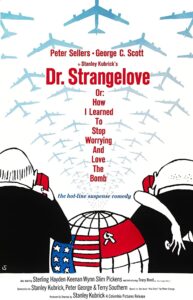
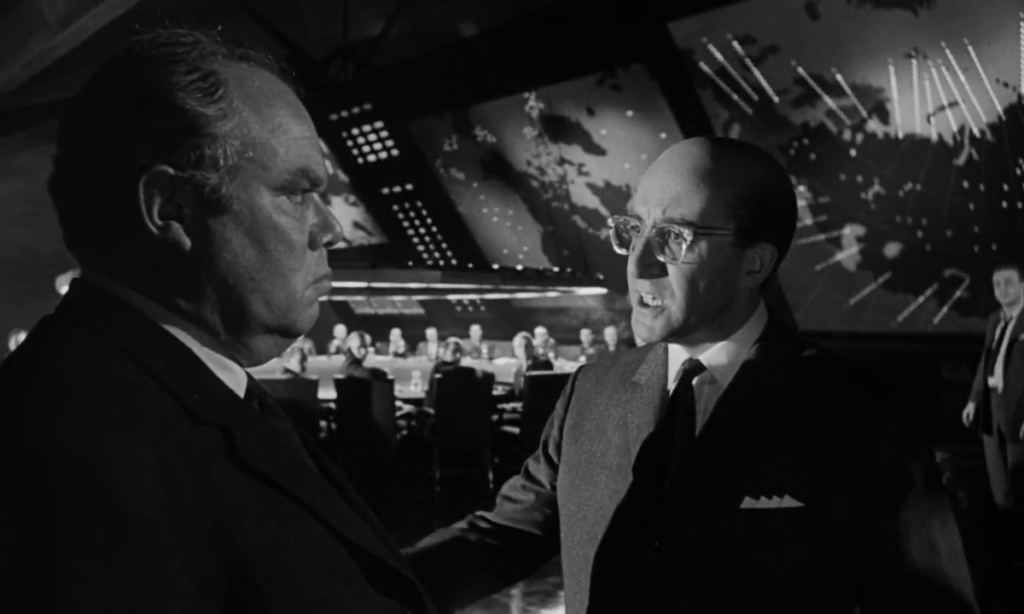
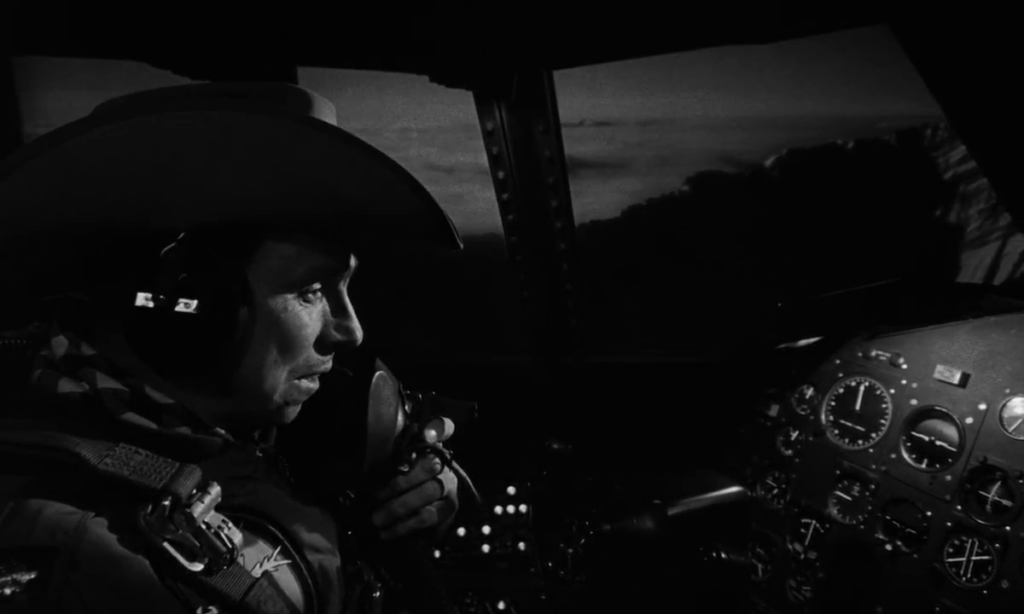
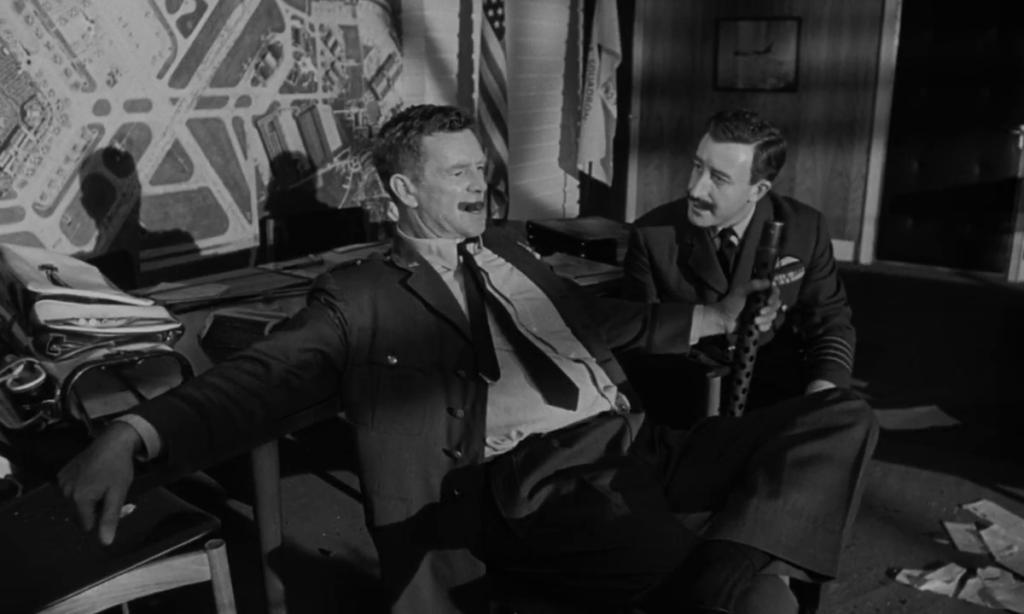
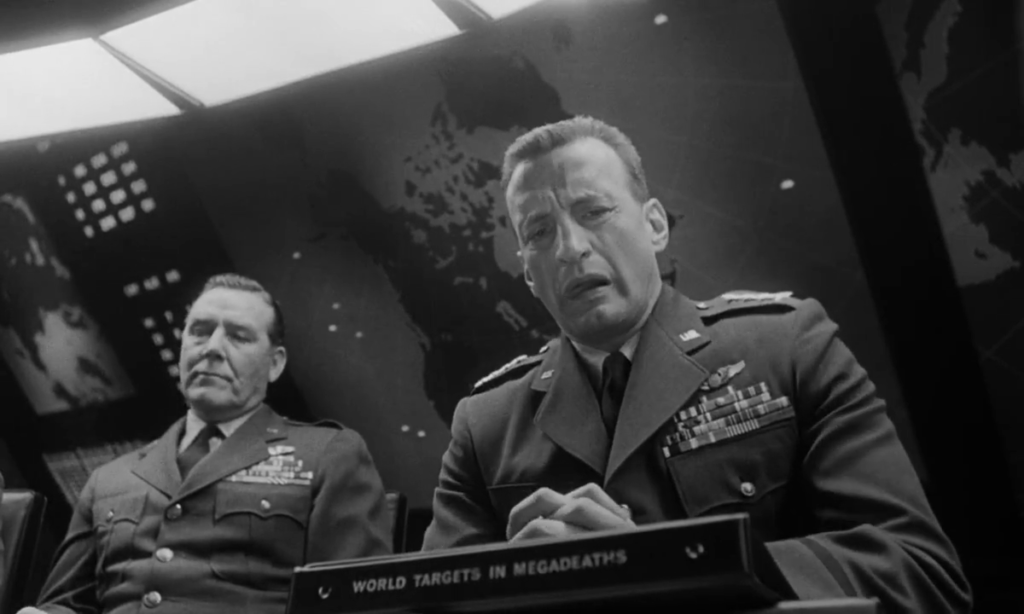
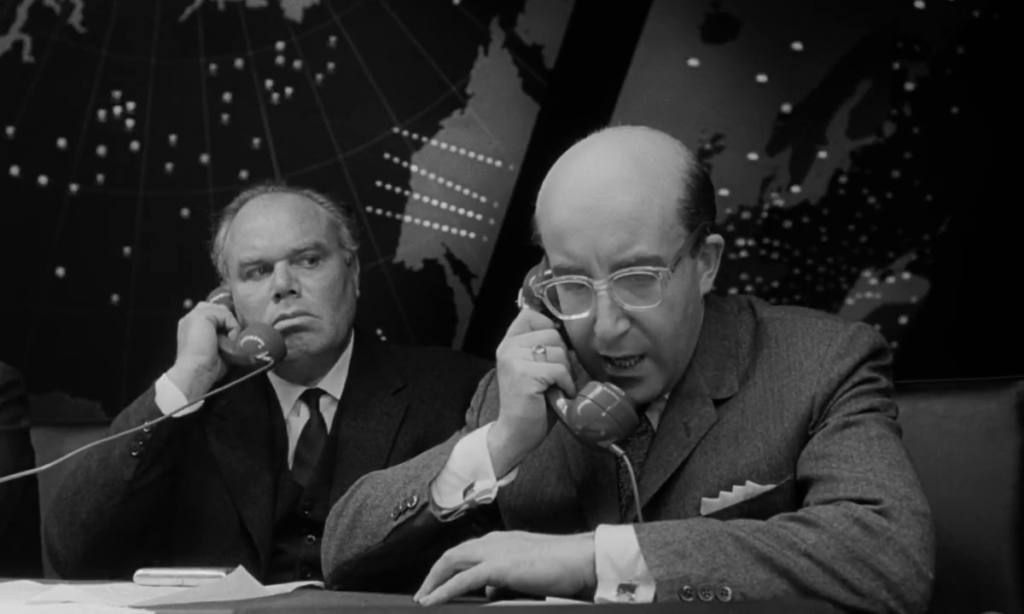
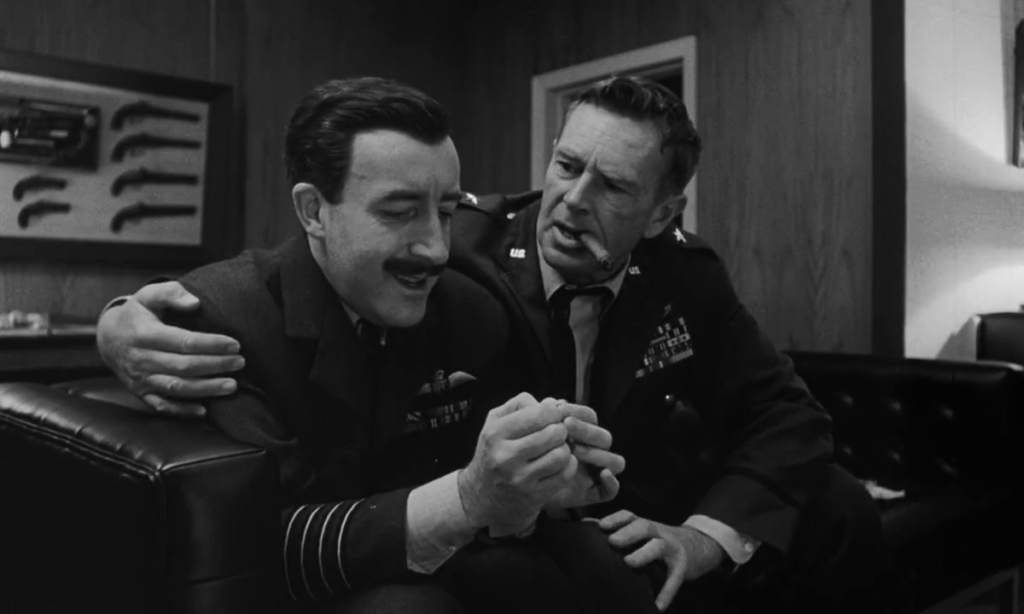

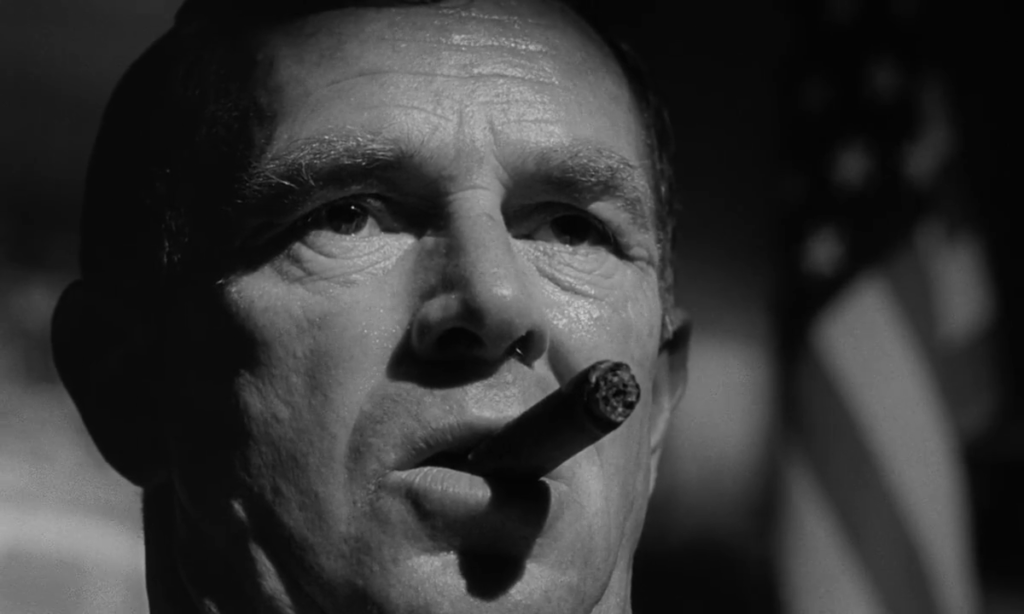
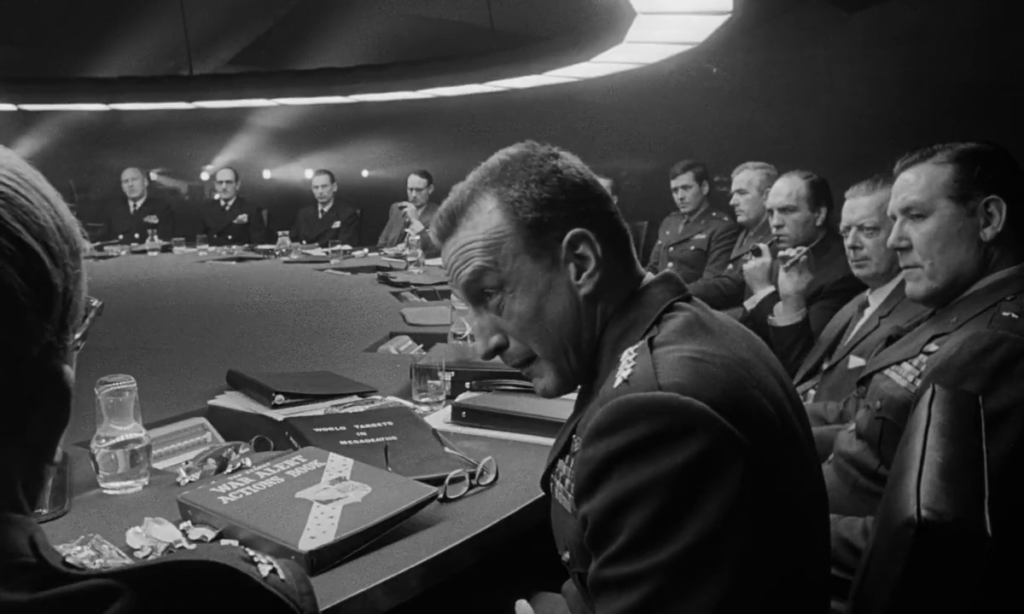
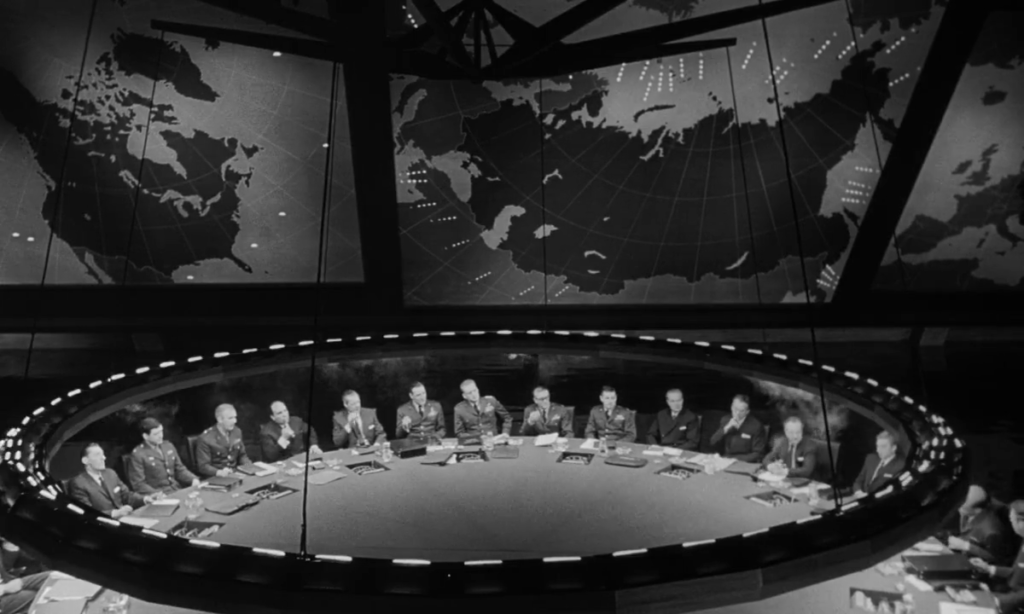
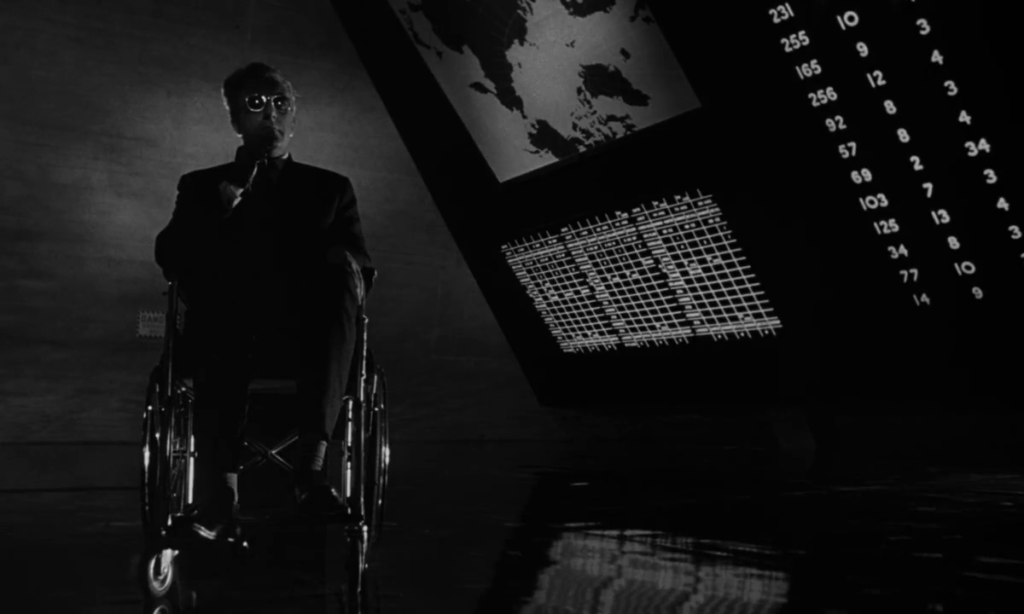
3 thoughts on “Dr. Strangelove or: How I Learned to Stop Worrying and Love the Bomb (1964)”
⭐️⭐️⭐️⭐️⭐️ out of ⭐️⭐️⭐️⭐️⭐️
A cast-iron classic and definitely a must see film. It makes a great double bill with the serious treatment of the same story Fail Safe (1964).
A no-brainer must-see – one which has more-than-enough delights for a number of viewings.
The recent time I rewatched this, I thought, “This is a perfect movie.” ‘Perfect’ isn’t a word I would often apply to a film; if I did do such a thing often, it would have no meaning.
But ‘Strangelove’ works like a dream (or nightmare, as the case may be) from first frame to last. I wouldn’t say that about any other Kubrick film that preceded it – and I also happen to think it was Kubrick’s last good film. (The director’s fans will certainly take firm issue with that but it’s how I feel. Naturally, there are certain aspects of the subsequent films that work – but, overall, post-‘Strangelove’ films, to me, read too largely as egocentric.)
The script is, by turns, hilarious in a realistic way and among the blackest of black comedies. ~ which we can largely thank co-writer Terry Southern for, in the same way that we can thank Vladimir Nabokov (and Peter Sellers’ ability at improve) for the lesser-amount of actual comedy in ‘Lolita’. If you look at all of Kubrick’s work, it seems clear that he’s not all that funny a guy – at least not in his art. But (as Sydney Pollack showed with ‘Tootsie’), Kubrick knew how to direct comedy as though it were drama: you just have the actors play everything as real.
Over the years, I have probably seen this film somewhere between 10-15 times. Every single time, it has seemed fresh to me; as though it’s happening *right now* as I watch it. I find that a remarkable accomplishment.
Kubrick kept on making films but, in my opinion, it was probably going to be very difficult for a director to top ‘Strangelove’ (or maybe even equal it). Still… Kubrick ‘went out’ almost literally with a BANG!
I think “perfect” is just about the right term for this film – and like you, I wouldn’t/don’t use that term lightly.
To me, it applies to a film where everything “works” from second to second and you can’t imagine it playing out any other way. It also, of course, applies to a film that can be watched innumerable times.
You kind of watch, slack-jawed, in amazement at each moment.